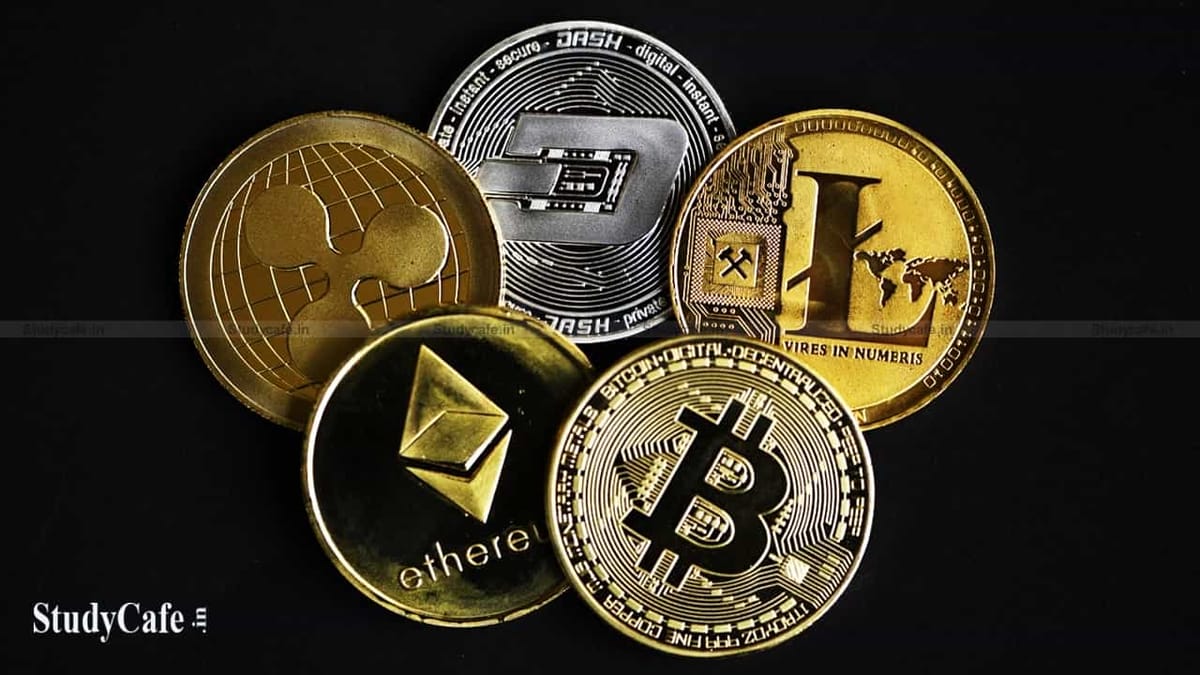Deepshikha | Oct 23, 2021 |

Cryptocurrency in India and Its Significance
From the introduction of Bitcoin in 2008 to the present, cryptocurrencies have grown in popularity all over the world. Since the beginning of the Covid-19 epidemic in January 2020, this industry has seen incredible growth, with the “crypto market” increasing by over 500%.
However, the Finance Minister stated in his 2018-19 budget speech that the government does not consider cryptocurrencies to be legal tender.
Given that India was a late adopter in all previous phases of the digital revolution – when semiconductors, the internet, and smartphones made their mark – there is a need for a shift in mindset and acceptance for these virtual currencies, which represent India’s first step into the next phase of the digital revolution.
Bitcoin, the first cryptocurrency, began trading at $0.0008 in 2010 and reached a market price of almost $65,000 in April 2021. Since Bitcoin’s inception, many more coins have been released, with a total market value of $2.5 trillion by May 2021.
The Reserve Bank of India (RBI) issued a circular in 2018 prohibiting all banks from dealing in cryptocurrencies. In May 2020, the Supreme Court ruled that the circular was illegal.
The government recently declared that it will introduce the Cryptocurrency and Regulation of Official Digital Currency Bill, 2021, to establish a sovereign digital currency while simultaneously prohibiting the use of private cryptocurrencies.
The money invested in Indian blockchain start-ups represents less than 0.2 percent of the total raised by the industry worldwide. Because of the present stance on cryptocurrencies, it is nearly hard for blockchain entrepreneurs and investors to make a profit.
The Cryptocurrency and Regulation of Official Digital Currency Bill, 2021, is focused on the anticipated ban. It aims to make all private cryptocurrencies illegal in India.
However, classifying cryptocurrencies as either public (supported by the government) or private (owned by an individual) is incorrect because they are decentralized but not private. Bitcoin and other decentralized cryptocurrencies aren’t or can’t be controlled by anybody, private or public.
Bans on cryptocurrencies are expected to result in a talent and business flight from India, similar to what happened after the RBI banned cryptocurrencies in 2018.
Back then, blockchain professionals relocated to nations like Switzerland, Singapore, Estonia, and the United States, where cryptocurrency was regulated.
Blockchain innovation, which has applications in governance, data economy, and energy, will grind to a halt in India as a result of the blanket ban.
1. A prohibition would deprive India, its entrepreneurs, and residents of a breakthrough technology that is fast gaining traction around the world, including by some of the world’s most powerful companies like Tesla and Master Card.
2. Instead of regulating, banning will merely create a parallel market, increasing illegitimate use and contradicting the ban’s objective. A ban is impossible to implement because anyone may buy cryptocurrencies on the internet.
3. The Ministry of Electronics and Information Technology’s (MeitY) Draft National Strategy on Blockchain, 2021, hails blockchain technology as a transparent, safe, and efficient technology that adds a layer of trust to the internet.
1. Regulation is required to avoid significant issues, guarantee that cryptocurrencies are not mishandled, and safeguard naive investors from market instability and potential scams. The regulation must be clear, transparent, cogent, and guided by a vision of what it aspires to accomplish.
2. A legal and regulatory framework must first define crypto-currencies as securities or other financial instruments under applicable national laws, as well as identify the responsible regulatory authority.
3. Rather than outright banning cryptocurrencies, the government should regulate their trading by imposing severe KYC, reporting, and taxation requirements.
4. To address concerns about openness, information availability, and consumer protection, record keeping, inspections, independent audits, investor grievance redress, and dispute settlement may be considered.
5. Cryptocurrencies and Blockchain technology have the potential to rekindle the entrepreneurial surge in India’s startup environment, resulting in job opportunities for everyone from blockchain developers to designers, project managers, business analysts, promoters, and marketers.
While the cryptocurrency market in India is now dominated by retail investors, there is growing confidence within the industry that once regulatory certainty is provided by the government, crypto would see participation from not only banks but also many other institutional investors.
Consider the situation in the United States, where the Securities and Exchange Commission (SEC) recently approved crypto-based exchange-traded funds (ETFs), and on October 19 the country witnessed the first-ever Bitcoin futures-based ETFs being traded, sending the digital token’s price to a six-month high. The next day, the rally propelled Bitcoin to a new all-time high of $66,000, a gain of more than 3% in a single day.
The institutionalization of cryptocurrency will only help to increase retail acceptance. Because it implies an additional layer of trust. The crypto retail industry currently has roughly 15 to 16 million consumers, which is not a significant number. This will benefit users by providing more ways to enter the crypto market. Banks will join, as will brokerage houses, and all of this will provide users with a plethora of possibilities.
In case of any Doubt regarding Membership you can mail us at contact@studycafe.in
Join Studycafe's WhatsApp Group or Telegram Channel for Latest Updates on Government Job, Sarkari Naukri, Private Jobs, Income Tax, GST, Companies Act, Judgements and CA, CS, ICWA, and MUCH MORE!"